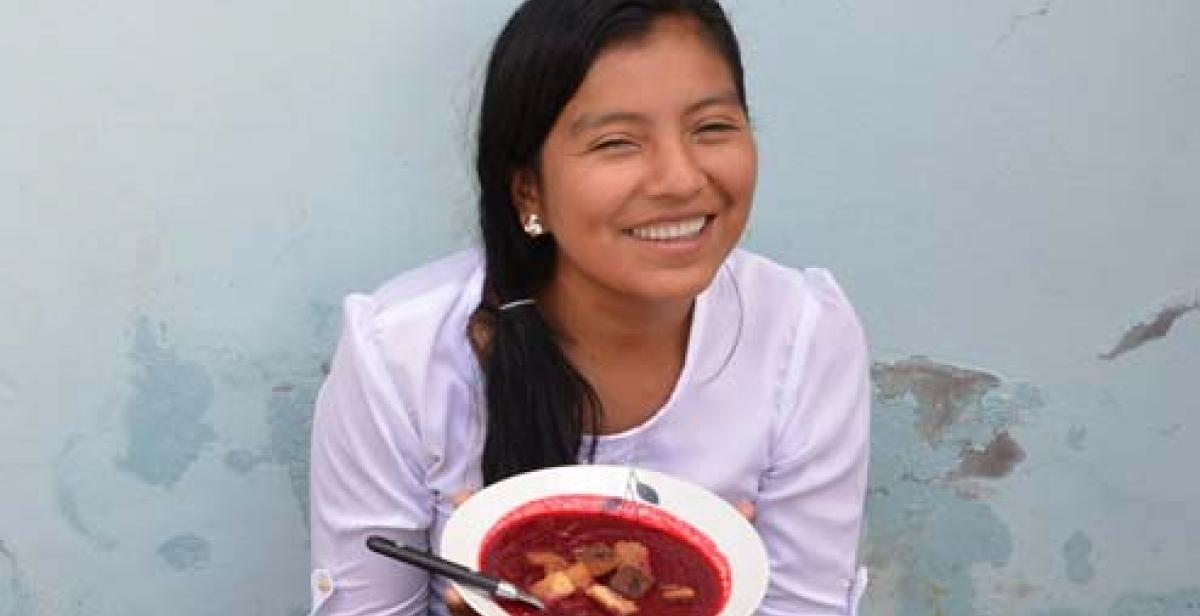On 3 February, in light of the Miss Honduras killing, Channel 4 reporter Guillermo Galdos wrote an article highlighting the perils women in Honduras face on a daily basis. Entitled ‘Honduras: Where women are killed for $60’, the article depicts a violent drug fuelled country where its women are treated like the dirt on the bottom of a shoe - it is certainly worth a read. Coincidently, our placement selection of Honduras fell within the exact week of this murder. Ripples were felt across the globe. Previous in-country volunteers had encountered these women and, as you can imagine, upon breaking the news to our family and friends that we too would be volunteering in this country, there were faces of grave concern.
However, with our placement drawing to a close and International Women’s Day approaching, our experience in Honduras has been vastly different to that depicted in Guillermo Galdos article. Hondurans, tourists and volunteers alike, describe Honduras as a country with two stories to tell: that of the cities, Tegucigalpa and San Pedro Sula, and then everywhere else. As volunteers we have had the opportunity to embed ourselves within a real Honduras, the town of Gracias and its rural communities. With this rare insight we have witnessed the realities that Honduran women face and met some wonderfully courageous, strong and inspirational ladies. These women are the single mothers of Honduras.
Honduran women are the backbone of the country, women that are at the service of their families; the carer and provider. Yet a woman’s life in Honduras is far from ideal- there is no such thing as nuclear family. Those with husbands often face alcoholism, domestic abuse and infidelity. Women lack the opportunities available to their counterpart, discrimination is a commonality and the term machismo is of cultural significance.
Machismo; a strong or exaggerated sense of manliness; an assumptive attitude that virility, courage, strength, and entitlement to dominate are attributes or concomitants of masculinity. A strong or exaggerated sense of power or the right to dominate.
Women tend to be seen as a property. There is at times a disregard of feelings, humanisation and respect. Men can be full of false promises and single parenthood is one of the biggest problems Honduran women face.
In Honduras:
- 53% of households are single mothers.
- The average age for a ‘woman’s’ first pregnancy is 15.
- 80% of registered births do not have a father’s name.
- The country has the highest rate of teen pregnancy in Central America.
Yet it is these single mothers of Honduras who, despite their hardship, are the inspirational success of this country. We are lucky to have been volunteering alongside two of them: Janeth and her mother Lucia.

Janeth is the eldest daughter of Lucia. Janeth, 19, fell pregnant with her daughter at 17. A mother, a daughter, a sister, a woman. She is a Progressio ICS national volunteer.
Janeth lives in her mother, Lucia Sarmiento’s house. Lucia is 36, a single mother herself. Lucia supports a household of seven, including her granddaughter. Their household consists of one male, he is 18.
During our placement here we have been supporting Lucia, building terraces to protect her crops from the effects of climate change and encouraging her to diversify her crops in order to self-sufficiently provide her family with food containing a variety of nutritional properties.
Awe-inspiring and undefeated, Lucia is the regional representative of Red COMAL , our partner organisation. Respected, she liaises with farms in the rural communities to improve the agricultural practices and support the sustainable development of this region. A role model, it was Lucia who has supported her daughter through the journey of motherhood, with a bible worth of advice, Lucia is her physical, moral and financial support.

Following in her mother’s footsteps Janeth, 19, is an active citizen, a Progressio ICS volunteer. Looking to develop the community for its own benefit, she promotes the use of organic fertilizers and is involved with youth projects. She participates in events and activities which help people in whatever way they can, all the while, juggling the demands of motherhood. Having left school due to ill treatment from a male classmate, she will continue to study once her voluntary placement is over, hoping to eventually attend university. An inspirational woman, her advice to fellow women and single mother is this:
“To move forward, not to let anything break us, to meet every obstacle with an exit, we are strong women, we are entrepreneurs. When I fell pregnant with my daughter the father denied it was his, even though I was certain of it. He said he was never going to support me, he argued. So I was supported by my mother to bring up my baby alone. The father is not necessary, I can only think that I am strong, that I am a fighter. I want to send the message: To go forward as strong women, fighters and examples, give us the opportunity to occupy the spaces that we can, because if we do not men will continue to treat us this way, we have to perform with great responsibility and efficiency because we can do these activities as women.”

A statement that is echoed by Progressio ICS UK volunteer Joe when describing a woman that inspired him on our radio programme, his mother, a single parent.
“The strength of a woman is not measured by the impact that all her hardships in life have had on her; but the strength of a woman is measured by the extent of her refusal to allow those hardships to dictate her and who she becomes.”
This is the single mother, this is Janeth and Lucia, this is the Honduran woman.



